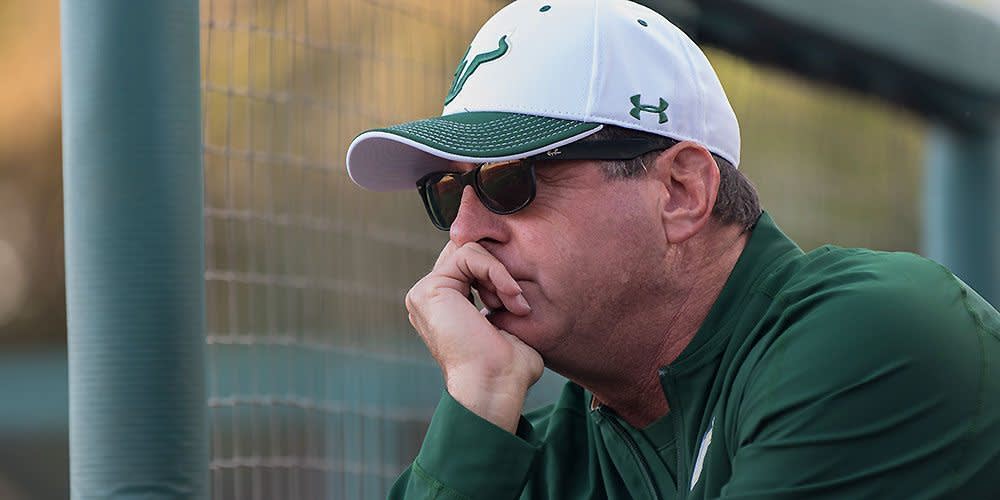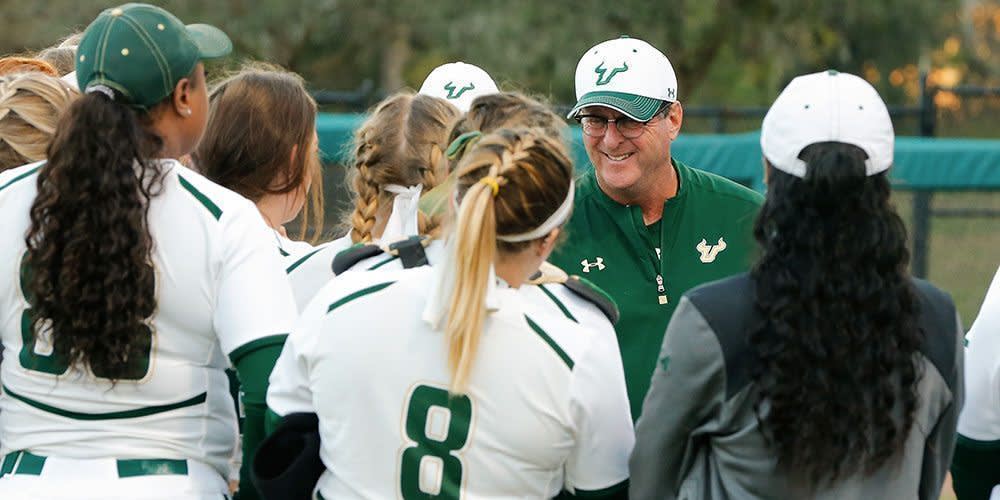
Ken Eriksen is the head softball coach for USA Softball’s Women’s National Team and at the University of South Florida (USF). An All-Region baseball player at USF, he began playing fastpitch softball after graduation. During his fifteen-year career, Mr. Eriksen participated in eight International Softball Congress World Championships and eight ASA Men’s Major National Championships. In 1992, he was named First Team All-World as a catcher. In 1996, Mr. Eriksen returned to his alma mater. In his 20-plus years at the helm, Mr. Eriksen has built USF softball into an elite, national-respected program. With all of his baseball and softball accolades, Mr. Eriksen points to where it all began as the key building block for his success: Little League®.
Little League: Where did you play Little League Baseball®?
Ken Eriksen: Central Islip Little League and Three Village Little League on Long Island. Like many kids, it was my first time with a bat and ball. It was a great learning experience, and a lot of fun interacting with kids my age. There was a focus on positive coaching, sportsmanship, and player development, and that’s important. All of that continues to be emphasized in the Little League program. It’s not just about the game, it’s about learning values, and the importance of family time and community. Throughout the country, there are pockets of communities, big and small, that have Little League programs, and it’s great because it shouldn’t be about traveling all the way over to another part of a state to play. Little League provides a great way for kids to learn about other kids in their area and the people in their area.
LL: Little League is a volunteer run organization. Does that help in Little League serving as a community-building cornerstone?
KE: Little League is a big part of every town it’s in. Local volunteers share their time because they realize it’s all about the kids in their community. Volunteers are important because they provide kids the opportunity to keep coming back the next week, the next month, the next year. That allows kids to develop a love for the game, and that love makes them want to give back later on by becoming mentors. I know the players I coach now really enjoy interacting with younger players.
LL: Do the players on the U.S. National Team feel it’s their duty to give back?
KE: Absolutely. They understand to whom much is given much is expected. They know the opportunities they’ve been given, and they want to share those same opportunities. I see our players notice all the little girls in the stands wearing ponytails and visors. They are in their uniforms wanting to emulate our players, and our players remember what it was like when they were at that age. Our players are as much fans of those little girls, as those girls are of us.

LL: What advice would you give parents trying to decide if their kid should play Little League?
KE: Little League Baseball and Little League Softball® go hand-in-hand with fun spring and summer activity. It’s a learning experience they can’t get many other places. Little League understands that this is a game for kids, and they take great measures to make sure it is a positive experience. While I love to see as many kids playing baseball and softball, parents should also allow their kids to play other sports to be well-rounded.
LL: Do you think parents should get their child involved in Little League at an early age, at the Tee Ball level?
KE: Yes, because that’s where the teaching begins, and that’s where the love for the game starts. Once that seed is set, many players play for years to come, and then end up giving back. That’s what helps the sport grow.
LL: As a manager, you’ve had great success. What advice would you give Little League coaches?
KE: Don’t coach. Instead, teach. Don’t worry about the scoreboard. That will take care of itself. Just teach. Remember, every time you step between those lines is an opportunity to help a kid mature both on and off the field.
LL: Do you see a time when softball will be as popular as baseball?
KE: It can definitely happen. The key is for everyone to realize that it is basically the same game, but on a different scale. It’s still about throwing the barrel at the ball, fielding properly, throwing somebody out, and hustling down to first base. Softball is exciting. The reaction time and coordination required, especially at the collegiate level, is incredible. These players are awesome athletes, and they play a great style of ball. For any parent considering signing their kid up for softball, they should go watch a collegiate game. Parents will be amazed at the talent and drive. That’s incentive enough. Even though most players won’t make it to the collegiate level, it’s inspiring to witness what is possible. Anything is possible through hard work and dedication.